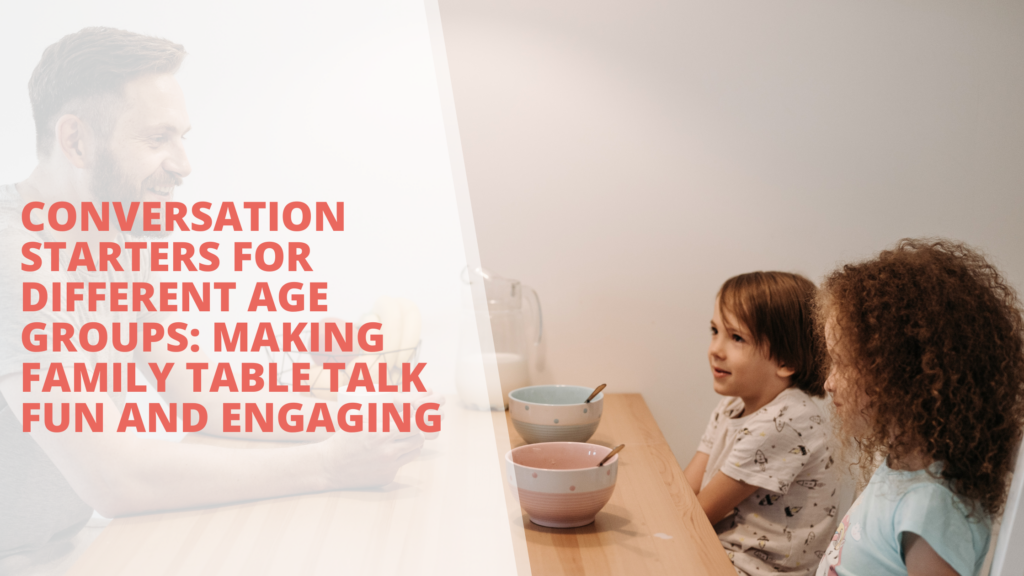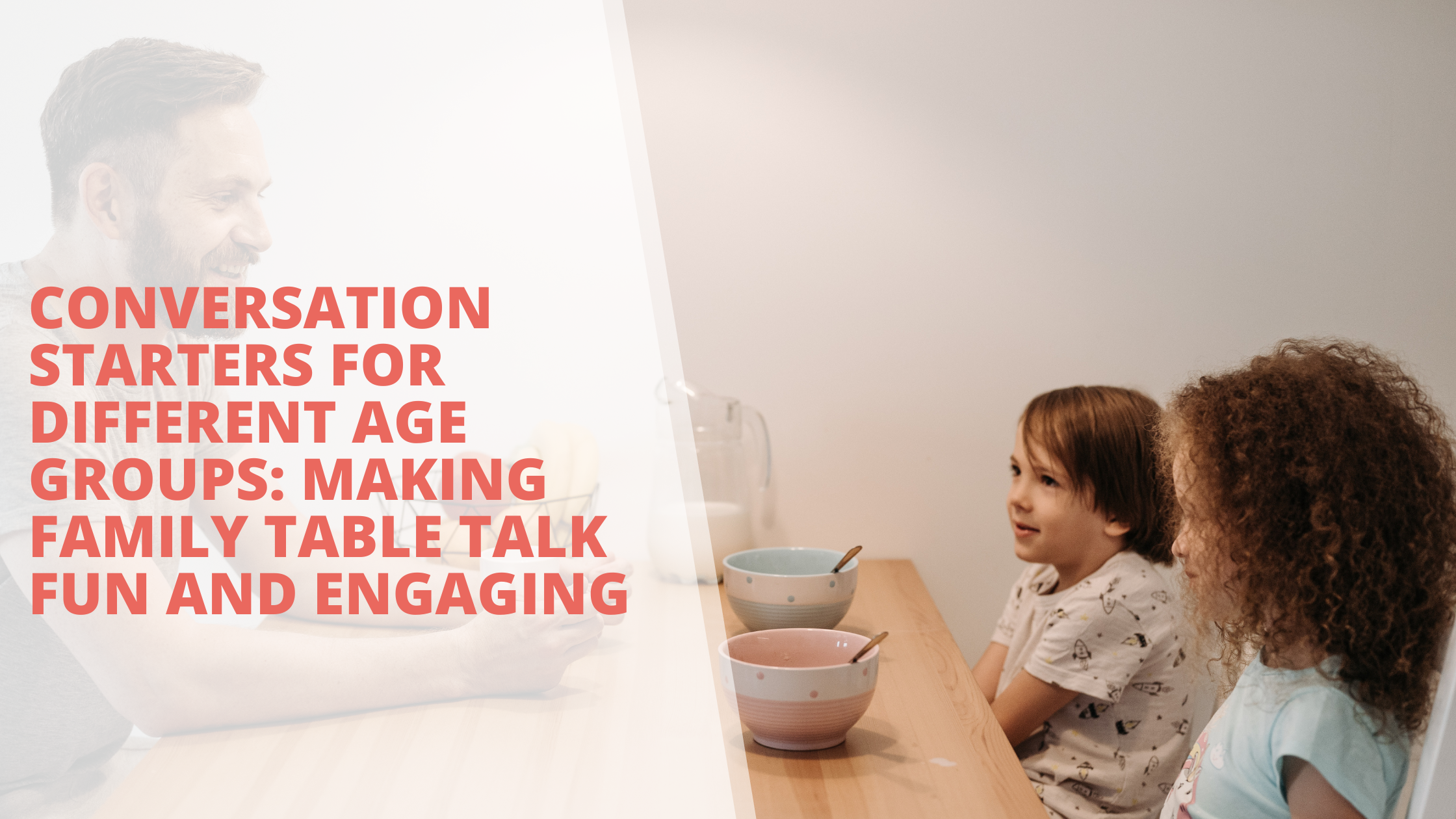
The family dinner table is a powerful place for connection. In today’s fast-paced world, where technology often dominates our attention, the Table Talk Project aims to bring families back to meaningful face-to-face conversations. Our focus? Providing age-appropriate conversation starters that can spark engaging discussions for everyone—from young children to teenagers to adults. Whether you’re looking to foster deeper relationships or simply enjoy some quality time, we have conversation topics and questions tailored to every age group, ensuring that family time is both fun and fulfilling.
Why Age-Appropriate Conversation Starters Matter
Engaging in conversations with family members of different ages can sometimes be a challenge. What fascinates a 5-year-old may not interest a teenager, and adults often find themselves out of sync with the younger generation’s interests. The Table Talk Project recognizes these differences and provides conversation starters designed to meet the unique needs and preferences of each age group, making sure everyone feels included and valued.


Conversation Starters for Young Children (Ages 3-8)
For young children, the key is to keep it simple and playful. Their attention spans are short, and they thrive on topics that involve imagination and exploration.
1. Fun and Imaginative Questions:
- “If you could have any animal as a pet, what would it be and why?”
- “What superpower would you like to have for a day?”
- “If you could visit any place in the world, where would you go?”
2. Learning and Sharing:
- “What’s the best thing that happened to you today?”
- “Can you teach us something new you learned this week?”
- “What’s your favorite story or book, and why?”
3. Feelings and Emotions:
- “How do you feel when you make a new friend?”
- “What makes you happy or sad?”
- “What was the funniest thing that happened to you today?”
Tip for Parents: Use visual aids like storybooks or pictures to help children express their thoughts more vividly. Also, be patient and encouraging, allowing them time to think and respond.
Conversation Starters for Tweens and Teenagers (Ages 9-18)
Teenagers are developing their own identities and opinions. They appreciate topics that respect their growing independence and intellectual curiosity.
1. Personal Interests and Hobbies:
- “What’s a new hobby or activity you’ve enjoyed recently?”
- “If you could learn any skill instantly, what would it be?”
- “What’s your favorite movie or music right now, and why?”
2. Social and Current Events:
- “What’s a current event that interests you, and what’s your opinion on it?”
- “How do you feel about social media and its impact on friendships?”
- “What’s a cause or issue you feel passionate about?”
3. Future Goals and Aspirations:
- “What are some goals you have for the next year?”
- “What’s a career or job you find fascinating?”
- “If you could change one thing about the world, what would it be?”
Tip for Parents: Show genuine interest in their responses and encourage open-ended discussion. Avoid judgment and instead, offer support and guidance when needed.
Conversation Starters for Adults (Ages 19+)
For adults, conversations often revolve around experiences, deeper reflections, and shared interests.
1. Life Experiences and Stories:
- “What’s the most memorable trip you’ve ever taken?”
- “Can you share a funny or interesting story from your childhood?”
- “What’s a book or movie that significantly impacted you?”
2. Personal Growth and Goals:
- “What’s a personal goal you’re working towards right now?”
- “How do you handle stress and unwind after a long day?”
- “What’s a new skill or hobby you’d like to develop?”
3. Relationships and Values:
- “What qualities do you value most in friendships?”
- “How do you maintain work-life balance?”
- “What’s a tradition or value you want to pass on to the next generation?”
Tip for Families: Encourage everyone to share their thoughts and experiences, creating a supportive environment where each person feels heard and respected.
Bringing It All Together: Making Table Talk a Family Tradition
To make the most out of your table talk sessions, consider these practical tips:
- Consistency: Set aside regular family meal times or designated moments for conversation.
- Inclusivity: Ensure that each family member gets a chance to contribute.
- Flexibility: Be open to where the conversation leads; sometimes the best discussions are unplanned.
- Encouragement: Celebrate contributions and encourage each other, fostering a positive atmosphere.
Conclusion
The Table Talk Project is here to transform family interactions with age-appropriate conversation starters that cater to young children, teenagers, and adults alike. By bringing these tailored questions to your dinner table, you can enrich family relationships, promote understanding, and create cherished memories.
For more conversation ideas and family engagement tips, visit our website and join our community. Let’s make every meal a delightful opportunity to connect and grow together!

